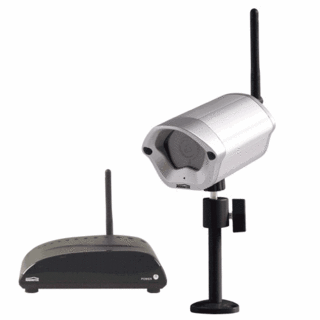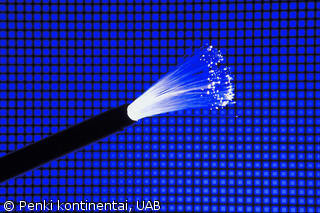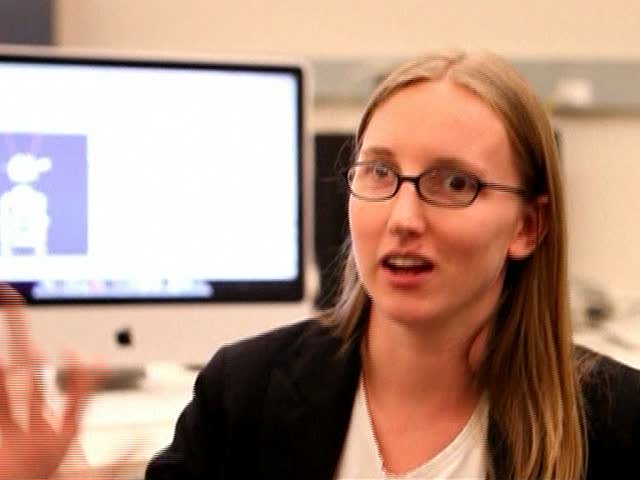Professor Lawrence Lessig of Harvard University warned that in the move to broadband technologies, "we are at the beginning of a war" .
Published:
20 May 2000 y., Saturday
Professor Lawrence Lessig of Harvard University warned that in the move to broadband technologies, "we are at the beginning of a war" that threatens to return the Internet to centralized control, in an address at the ninth International World Wide Web Conference.
Saying that "extraordinary blindness reigns in my country," Lessig, at the conference in Amsterdam, said that in the move to broadband technologies cable companies and Hollywood movie studios are threatening the return the Net to centralized control where content will no longer be produced from the bottom up and distributed freely.
At the root of the problem, he said, is the "bullshit" American belief that the "government should stay out of the Internet." Because of this "extraordinary blindness" people are standing by while cable companies are maneuvering to gain the power to choose how the network is used.
One reason Americans are standing by and allowing the Net to be limited is that they are so impressed by e-commerce they worry that government intervention could ruin a good thing.
People should realize that the government has been instrumental in the development and success of the Net, Lessig said. The breakup of AT&T (T) in 1984 gave "birth to innovation around telecommunications," because it forced the telephone platform to become neutral when it came to content and services.
The core value of architecture of the Internet is the "end-to-end argument" which Lessig said "keeps intelligence at the ends of the network while keeping the network itself simple." Because of this value, the network is not in a position to discriminate and therefore has "no influence on content." In this type of system, the market chooses what works and the better idea prevails. "It's not b-to-b or b-to-c that matters," he quipped, "it's e-to-e, end-to-end, that makes all the difference."
The International World Wide Conference is a scholarly affair where many of the world's top computer scientists present technical papers and debate the state of today's Internet.
Copying, publishing, announcing any information from the News.lt portal without written permission of News.lt editorial office is prohibited.
The most popular articles
Software company announced new structure_ of it_s business.
more »
 Just a few weeks ago, the world's tiniest video camera was as small as a grain of rice. Today, the world's NanoEst camera is even smaller.
more »
Just a few weeks ago, the world's tiniest video camera was as small as a grain of rice. Today, the world's NanoEst camera is even smaller.
more »
 During the experiment two research groups managed to overcome a symbolic 100 TB/s optical fiber data transmission speed limit.
more »
During the experiment two research groups managed to overcome a symbolic 100 TB/s optical fiber data transmission speed limit.
more »
 Apple’s long–awaited online storage service for iTunes could be named iCloud, if only rumours are to be believed.
more »
Apple’s long–awaited online storage service for iTunes could be named iCloud, if only rumours are to be believed.
more »
 The founders of video-sharing site YouTube have bought bookmarking service Delicious from Yahoo.
more »
The founders of video-sharing site YouTube have bought bookmarking service Delicious from Yahoo.
more »
 The successful raid by hackers on Sony’s PlayStation Network is already being ranked among the biggest data thefts of all time.
more »
The successful raid by hackers on Sony’s PlayStation Network is already being ranked among the biggest data thefts of all time.
more »
 Apple has denied that its iPhones and 3G iPads have been secretly recording their owners' movements.
more »
Apple has denied that its iPhones and 3G iPads have been secretly recording their owners' movements.
more »
 Customers who have waited nearly 10 months for the white version of the iPhone 4 won’t have to wait much longer. The Great White iPhone 4 is finally here.
more »
Customers who have waited nearly 10 months for the white version of the iPhone 4 won’t have to wait much longer. The Great White iPhone 4 is finally here.
more »
 Researchers at Georgia Tech University are teaching a robot the basics of dialogue. Named "Simon", the robot has already been taught how to attract a person's attention but eventually, it's hoped he'll be able to interact and converse with humans in daily life.
more »
Researchers at Georgia Tech University are teaching a robot the basics of dialogue. Named "Simon", the robot has already been taught how to attract a person's attention but eventually, it's hoped he'll be able to interact and converse with humans in daily life.
more »
 3D? Terribly lame when it's tossed into devices as a bullet point feature. Trimensional for iPhone takes a picture of your face and maps your mug in a 3D model.
more »
3D? Terribly lame when it's tossed into devices as a bullet point feature. Trimensional for iPhone takes a picture of your face and maps your mug in a 3D model.
more »
 The European Union is to investigate whether internet service providers (ISPs) are providing fair access to online services.
more »
The European Union is to investigate whether internet service providers (ISPs) are providing fair access to online services.
more »